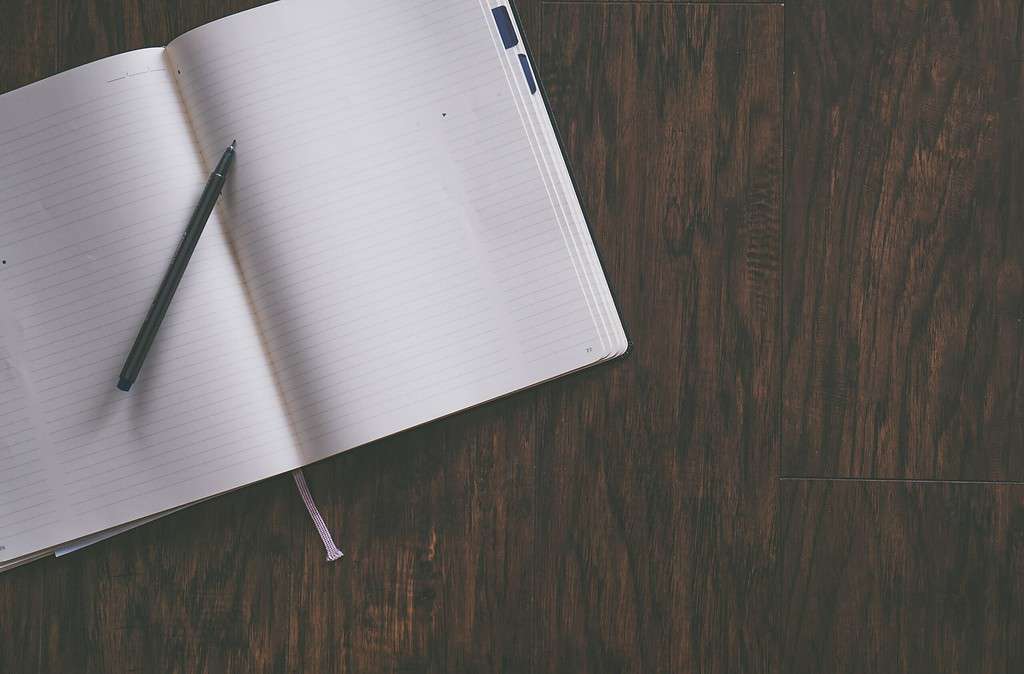Living with a reactive dog can be a challenging, overwhelming, exhausting experience. As someone living with a reactive dog you may find yourself constantly on edge and anxious, never knowing when your dog will react to a trigger. You may feel frustrated, ashamed or even angry about your dog’s behaviour. It’s normal to feel this way, and it’s essential to remember that reactive or aggressive behaviour is a common problem that many dogs and their people face. Incorporating a daily reflection practise into your routine can make a significant difference in managing the behaviour of your reactive dog and improve your mental health and well-being at the same time.
Living with a reactive dog
All dogs react to things in their environment. They’d be dead if they didn’t. What is often meant by the term reactive is a dog that reacts negatively and/or overreacts to certain stimuli, such as other dogs, strangers, or loud noises. They may bark, growl, or lunge in response, which can be stressful for both for you and your dog. Living with a reactive dog requires a lot of patience, consistency, and understanding. All of which can be tough when you’ve got a dog doing a fabulous impression of an enraged Tazmanian devil at the end of the lead.

Common challenges of living with a reactive dog
1. Social isolation
Owners of reactive dogs may feel isolated and limited in their social activities. Walking your dog may become a source of stress rather than enjoyment, and you may avoid certain places or activities to prevent triggering your dog’s reactive behaviour. This can lead to feelings of loneliness and isolation.
2. Embarrassment
Reactive dogs may bark, lunge, or growl at other dogs or people, which can be embarrassing. The fear of being judged or criticised can make it difficult to seek help or socialise with others. And you may be genuinely concerned about the safety of others and so isolate yourself to avoid problems.
3. Training difficulties
It takes a great deal of time and emotional energy to train a reactive dog. It can be frustrating when you don’t see immediate results, and setbacks can be discouraging. The training process may also require a significant financial investment in professional help, training tools, and equipment.
4. Emotional strain
Living with a reactive dog can be emotionally draining. The constant stress and anxiety of anticipating your dog’s behaviour can take a toll on your mental health. It’s important to practice self-care and seek support from others when needed.
5. Safety concerns
Reactive dogs can pose a safety risk to other dogs and people. It’s important to take necessary precautions, such as using a secure lead and muzzle, to prevent incidents and ensure the safety of others.
What is a reflection practise and why is it important?
A daily practise of self-reflection involves taking the time to consider your own feelings, thoughts, and experiences. Reflection can help you become more self-aware and mindful, enabling you to make better decisions and communicate more effectively. Daily reflections are also an effective way to manage stress, anxiety, and other negative emotions.

Reflection benefits for you
The mental benefits of a reflection practise are vast and varied. Daily reflection can help you:
1. Improve self-awareness
Self-awareness is the ability to understand your own thoughts, feelings, and behaviours. By practicing daily reflection, you can become more aware of your own emotions and reactions to your reactive dog’s behaviour. This self-awareness can help you regulate your emotions and prevent them from escalating.
2. Increase emotional regulation
Emotional regulation is the ability to manage and respond to your emotions in a healthy way. Daily reflections can help you identify your emotional triggers and develop strategies to manage them. This can help you stay calm and composed when dealing with your dog’s reactive behaviour.
3. Improve decision-making
Daily reflection can help you become more thoughtful and deliberate in your decision-making. By reflecting on your past decisions and actions, you can identify areas for improvement and make more informed choices in the future. You can use daily reflections to identify triggers that cause your dog to react and develop strategies to manage those triggers.
4. Better communication with your dog
Effective communication is essential in managing reactive behaviour in dogs. Daily reflections can help you identify areas where you can improve your communication with your dog. By becoming more attuned to your dog’s body language and behaviour, you can communicate more effectively and prevent reactive behaviour from escalating.
Reflection benefits for your dog
Reflection isn’t just beneficial for you; it can also be helpful for your dog. No, you will not teach them their own journal practise. But your own reflections will help your dog.
Dogs are often highly attuned to their people and can pick up on subtle changes in their behaviour. By practising daily reflection, you can create a calmer and more stable environment for your dog. Daily reflections can help your dog:
1. Feel more secure
Dogs, especially dogs that can struggle in some situations, thrive in environments that are calm and predictable. Daily reflections can help you regulate your emotions and create a stable environment for your dog. This stability can help your dog feel more secure and less likely to overreact to things.
2. Improve their behaviour
Dogs are often sensitive to their person’s behaviour. If you’re feeling anxious or frustrated, your dog may perceive that and start scanning to see what the problem is. By practising daily reflection, you can regulate your emotions and prevent them from escalating, which can help improve your dog’s behaviour.
3. Strengthen your bond
Daily reflections can help you develop a deeper understanding of your dog’s behaviour and needs. This understanding can strengthen your bond with your dog and create a more meaningful relationship.
Incorporating daily reflections into your routine
Incorporating a reflection practise into your routine is straight-forward and can be done in just a few minutes each day. Find a quiet space where you can focus and set aside time each day to reflect. Use a journal to record your thoughts and feelings, or simply take a few minutes to sit quietly and look inward. Reflection questions may include: How did my dog react today? How did I react? What could I have done differently? How did I feel about the situation?
1. Make time for reflection
Set aside a few minutes each day to reflect on your thoughts, feelings, and experiences. Choose a time when you can be alone and undisturbed, such as early in the morning or before bed. It can help to jot a few short notes after a walk and then reflect more fully at the end of the day.
2. Focus on the positive
Journalling becomes a “paper mirror” reflecting our experiences back at us. Ryder Carroll suggests looking at journalling as a reflection of our focus. It can be tempting when journalling to only focus on the negative. To let it all out. But if that’s only what you use journalling for it’s easy to get swamped by all the crap thanks to our very human negativity bias.
When reflecting on your day, give more focus on the positive experiences you had with your dog. Let the negative stuff out and review what you could change for next time. Then instead of dwelling on all the stuff that went wrong, find something that went well, even if it was a small success. Otherwise we risk believing our negative perception of our life is really true, rather than the distorted view it really is.
I like Matthew Dicks Homework for LIfe idea of telling the best story of each day with enough detail that you will be able to recall it many months and even years later.
3. Identify triggers
Reflect on the situations that trigger reactive behaviour in your dog. By becoming more aware of these triggers, you can anticipate and prevent them from escalating.
When you’ve identified the trigger, spend some time thinking about how you might deal with it in the future. Decide what actions you will take next time. Then when it happens, and you did what you planned – how did that work? Does it need tweaking?
4. Practise mindfulness
Mindfulness is the practise of being present in the moment without judgment. Practising mindfulness can help you regulate your emotions and stay calm when dealing with your dog’s reactivity. You can incorporate mindfulness into your daily reflection practise by focusing on your breath or body sensations.
When you are writing about what happened that day, where do you feel it in your body? Does your stomach tighten as you remember walking towards another dog? Paying attention to this will help you develop your plan for dealing with your own reactions and behaviour when it happens again in the future.
For instance, I often advise my clients that when they feel that tension in their stomach (or as I refer to it that “oh shit” moment), don’t hesitate, give your flight cue and move away. Get the distance your dog probably needs, then assess when you’ve got some space and the time to consider next steps.
Use your reflection time to learn what internal signals can be your cue for action.
5. Write it down
Writing down your reflections can help you process your emotions and gain a deeper understanding of your experiences. You can keep a journal or use a note-taking app to record your daily reflections.
It doesn’t have to be long form. I follow Ryder Carroll’s Bullet Journal Method and he encourages a regular reflection practise that makes use of the short form bullet notes that you can expand on if you want to.
6. Seek support
Living with a reactive dog can be isolating and stressful. Seeking support from others who understand what you’re going through can be helpful. You can join online support groups or attend training classes with your dog to connect with other owners who are dealing with similar challenges.
Try it out
Living with a reactive dog comes with a unique set of challenges that can be emotionally and physically taxing. Incorporating daily reflections into your routine can make a significant difference. Daily reflections can help you become more self-aware, manage your emotions, and develop effective strategies for managing your dog.
Seeking support from others and practicing self-care can help you cope with the challenges and maintain your mental health and well-being.
Remember that you are not alone, and with dedication and perseverance, you and your reactive dog can build a positive relationship and fulfilling life together.
If you’re looking for support with your dog’s reactivity journey I’d love to help you.

